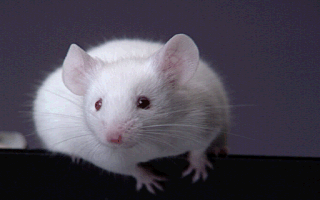PRINCETON UNIVERSITY
Animal Learning and Decision Making: Psychological, Computational and Neural Perspectives
Fall 2013, Tue/Thu 11:00-12:20, Green Hall 0-S-6

Instructor: Yael Niv
Email: yael at princeton dot edu
Office hours: by appointment at 3-S-11
AI: Nathan Parker
Email: nfp at princeton dot edu
Office hours: Fridays 2-3pm at 2-C-18
Format and content: The purpose of this course is to provide a modern, integrative view of classic animal learning phenomena from experimental psychology, through the lens of contemporary learning theory, computational models of learning and decision making, and current neuroscientific knowledge. Each week we will focus on one topic in experimental psychology. We will first discuss the major behavioral findings and the learning theory that pertains to them. Following this, we will discuss computational theories pertaining to the topic and what is currently known about the neural basis of these behaviors or computations.
Course requirements: Active class and precept participation (20%), reading of assigned literature, 4 out of 5 problem sets (40%), final Exam (40%; open book/notebook; no laptops by university rules).
Syllabus topics and presentations*:
Note: handouts are printed before class and are a tentative idea of
what we will talk about. They also have intentional gaps where I will ask
you questions and prefer to not reveal the answers yet. Slide
presentations are put up after the class and account for what we actually
covered, including corrections of errors in the handouts which we noticed
in class.
* Many thanks to all my colleagues and fellow teachers who have (mostly unknowingly) contributed much of the material that is included in the above slides
- Week 1 - Introduction - motivation, structure, requirements of the course; defining learning and decision making slides
- Weeks 2-4 - Classical conditioning - basic phenomena, error driven learning and the Resorla-Wagner model, second order conditioning and the Temporal Difference model, dopamine in the basal ganglia, opponent processes: appetitive vs. aversive, inhibitory vs. excitatory, opponent process model, fMRI of temporal difference errors slides I slides II slides III slides IV slides V slides VI
- Weeks 5-7a Instrumental conditioning - Thorndike, basic procedures, Skinner & free operant behavior, modeling action selection, Actor/Critic framework, neural substrates of Actor/Critic model, learning Q values, comparing models using neural data, modeling free operant behavior, actions and habits, S-R versus R-O, devaluation, dual neural pathways, uncertainty based arbitration slides I slides II-III slides IV slides V slides VI
- Week 7b: Classical vs. instrumental conditioning - comparison of instrumental and Pavlvovian procedures and processes, omission (we did not cover Pavlovian to Instrumental transfer this year) slides
- Weeks 8-9: Too much dopamine can be bad for you: Learning as a model of disorders - drug abuse, latent inhibition and schizophrenia addiction I addiction II latent inhibition
- Week 10: Extinction - What do animals really learn? - renewal, reinstatement and spontaneos recovery, Bayesian inference and infinite capacity latent cause models slides
- Week 11-12: Generalization and discrimination - phenomena & challenges, configural vs. elemental theories slides
- Week 12: Summary & a brief touch on topics we did not cover - attention and associability, other neuromodulators, amygdala, summary - the big picture, advice for a young investigator slides
Readings: (for PDFs go to blackboard)
- Textbook: Learning and Memory: From
Brain to Behavior by Gluck, Mercado & Myers (2nd ed) (See also
the companion website for chapter outlines, summaries and online quizzes.)
Note that this is not our textbook in the traditional sense, in that it covers more than we will be discussing (eg, memory) and does not cover everything that we will be discussing (eg, computational models)
Some books I recommend:
- Sutton, R. and Barto, A. -
Reinforcement Learning (1998) - A very good and accessible book
explaining the computational field of reinforcement learning (also available online .
- Mackintosh, N.J. - The Psychology of Animal Learning (1974) - Great book, although hard to find (out of print).
- Mackintosh, N.J. - Conditioning and Associative Learning (1983) - Shorter than the above and covers mostly theoretical aspects, not for complete beginners.
- Dickinson, A. - Contemporary Animal Learning Theory (1980) - Although this was contemporary a long time ago, it is still very good and easy to read.
- Classics in the History of Psychology - The classic papers in psychology ONLINE
- Behavioral Science Glossary - A useful glossary of many of the terms we use
- PsychWeb - Resource for psychology links
- The Psi Cafe - Resource for psychology links
- Sniffy the Virtual Rat - 20 day downloadable demo of Sniffy